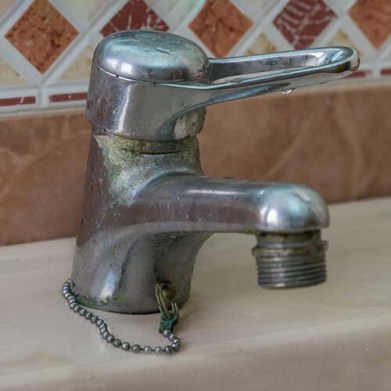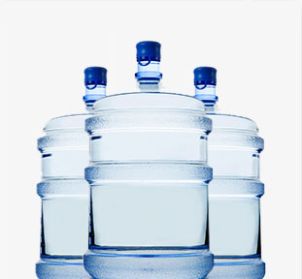
The Effects of Drinking Hard Water

The term “hard water” doesn’t correspond with the refreshing, clean, smooth-flowing feeling most people associate with water. Our Culligan Water experts are often asked, “What is hard water?” While some homeowners aren’t aware of the term, many are all too familiar with the effects of hard water. It’s the reason why many people notice their hair is dry or their skin is irritated, or why dishes still show stubborn spots even after going through the dishwasher.
What Does Hard Water Contain?
You may be dealing with hard water and not even know it. If you’ve ever spent time cleaning water “stains” from your surfaces, taps, and shower walls, you’ve likely been in contact with hard water already. Hard water, according to the U.S. Geological Survey (USGS), refers to the amount of dissolved calcium, magnesium and other minerals found in water.
Worried about hard water and its potential effects on you and your home? Diagnose your water problems and get recommended solutions with our Water Solutions Finder.
Here’s what happens: your water can collect minerals from the various sources it comes into contact with on its way to your tap. From lakes, wells, and pipes, water can collect dissolved particles. Even after water is treated at local water treatment centers (if you don’t have well water), the miniscule minerals can persist – or, if they’re removed, they can find their way back in through the aging water infrastructure in your city, town, or home.
Now that we’ve covered where it comes from, what are the side effects of hard water?
What are the Signs of Hard Water in Your Home?
Finding out if your home has hard water might be easier than you thought. Hard well water, and hard water from other sources, is an extremely common occurrence. A large part of the U.S. population deals with some form of hard water from their water sources.
 Download Now: Your FREE Hard Water Guide
Download Now: Your FREE Hard Water Guide
You might have been dealing with hard water in your home for years and have not known exactly what it was, only that your home seems to have more wear and tear than others.
What are the Disadvantages of Hard Water?
Your home’s water is likely hard if you notice:
- Mineral buildup on your shower head and taps
The places where water frequents in your home may build up a layer of minerals and may require constant cleaning. Those who live in homes with hard water will spend more time cleaning mineral deposits off their taps, shower heads, and sinks.

- Spots on your dishes and silverware
Even after being thoroughly washed, dishes and silverware may still have a white film or spots. The excess minerals in hard water stay on your dishes after they dry, requiring extra cleaning to remove the remaining residue.
- Residue on your surfaces
Hard water that dries on the shower door, countertop, or sink will leave streaks and spots. Cleaning hard water residue takes extra work, as the minerals in the water decrease the efficiency of your cleaning soap.
- Mineral buildup in your pipes, or even clogged pipes
Hard water is not kind to plumbing, and constant exposure to hard water can create buildup. If left untreated, these deposits can even clog drains and decrease your water quality.
- Appliances breaking down faster
The pipes and valves that transport water in your refrigerator, water heater, laundry machine, and dishwasher are equally affected by hard water. Hard water mineral buildup can clog your appliances, decreasing their effectiveness and quite possibly leading to expensive replacement and repairs. Your linens and laundry may also become discolored and worn with each wash.
- Costlier and additional cleaning
Hard water keeps your soaps and detergents from working as effectively. The minerals in hard water react with soap. If you’ve noticed you need quite a lot of soap to create lather, more detergent to get your clothes clean, or that you’re buying more cleaning supplies to handle increased stains, chances are your home has hard water.
Is Hard Water Bad for You?
You may be wondering, “Can hard water make you sick?” Hard water isn’t dangerous, and while it does have excess minerals that might make the taste unpleasant, it’s generally safe to drink. However, just because it’s not harming your health by drinking it doesn’t mean hard water doesn’t have negative effects on the rest of your body.
What Are The Signs of Hard Water for Your Body?
Hard water deprives your hair and skin of moisture. Minerals tend to coat, leaving a film behind and reducing moisture.
Your hair is affected by hard water as well and may not feel cleaner after washes. It can become stiff or limp and fall out more easily. You might even find that your hair still has shampoo in it after washing, no matter how hard you scrub. If this sounds familiar, it’s likely because your hair is being subject to the harsh particles in hard water.
Your skin is subject to the same hard water effects: difficulty in properly cleaning, excessive drying, and even worsening of sensitive skin conditions. The mineral particles left by the water absorb your skin’s natural oils, imbalancing your skin’s natural processes. (Read more about how hair, skin, and nails are affected by hard water here.)
While hard water likely won’t cause health issues or make you sick, the issues hard water brings into your home can still be costly and energy intensive.
How Do You Treat Hard Water?
A water softener is the best solution for removing these harsh minerals from your water and keeping your home running smoothly and cleanly.
Whether you’re concerned about your appliances, pipes, or your family, a water softener will resolve many of the difficulties hard water brings into your home. With a water softener system, you will ensure your home is cleaner, has longer-lasting appliances, and save resources and time with less intensive mineral buildup.
Related Articles
How To Prevent White Residue on Dishes
6 min read
Limescale Causes, Effects and Solutions
6 min read
Find A Location Near Me

Schedule Your Free
In-Home Water Test
Get better water in your home by scheduling an appointment with your local Culligan Water Expert.
Discover More
See All Articles

How To Prevent White Residue on Dishes
If you’ve noticed white residue on dishes, don’t blame your dishwasher detergent. The culprit is likely hard water — a high concentration of calcium and magnesium in your water supply. […]
6 min read

Explore

Explore
Our Products

Water Softeners
With any of our soft water systems, get more out of your water-using appliances while spending less on energy and detergent.
View Products

Water Delivery
There’s never been a better time to enjoy the convenience of scheduled bottled water deliveries from the Culligan® Water Experts
View Products

Water Filtration Systems
Culligan's water filtration systems have improved water quality for thousands of families worldwide.
View Products
